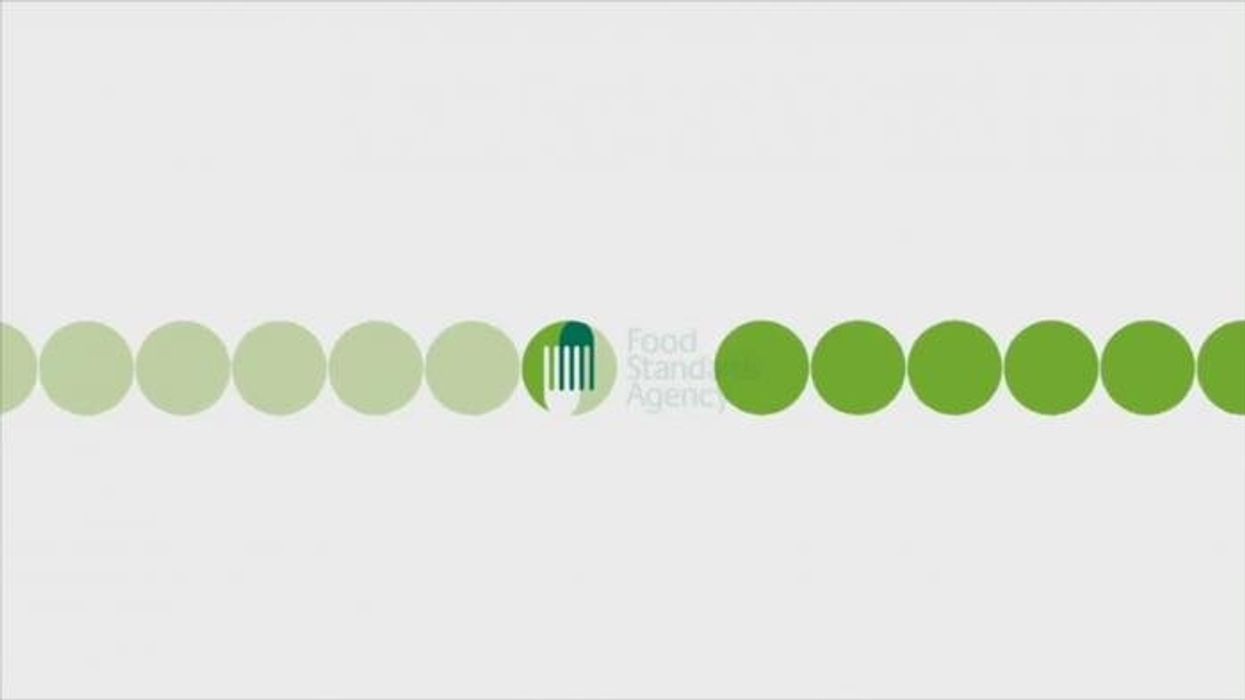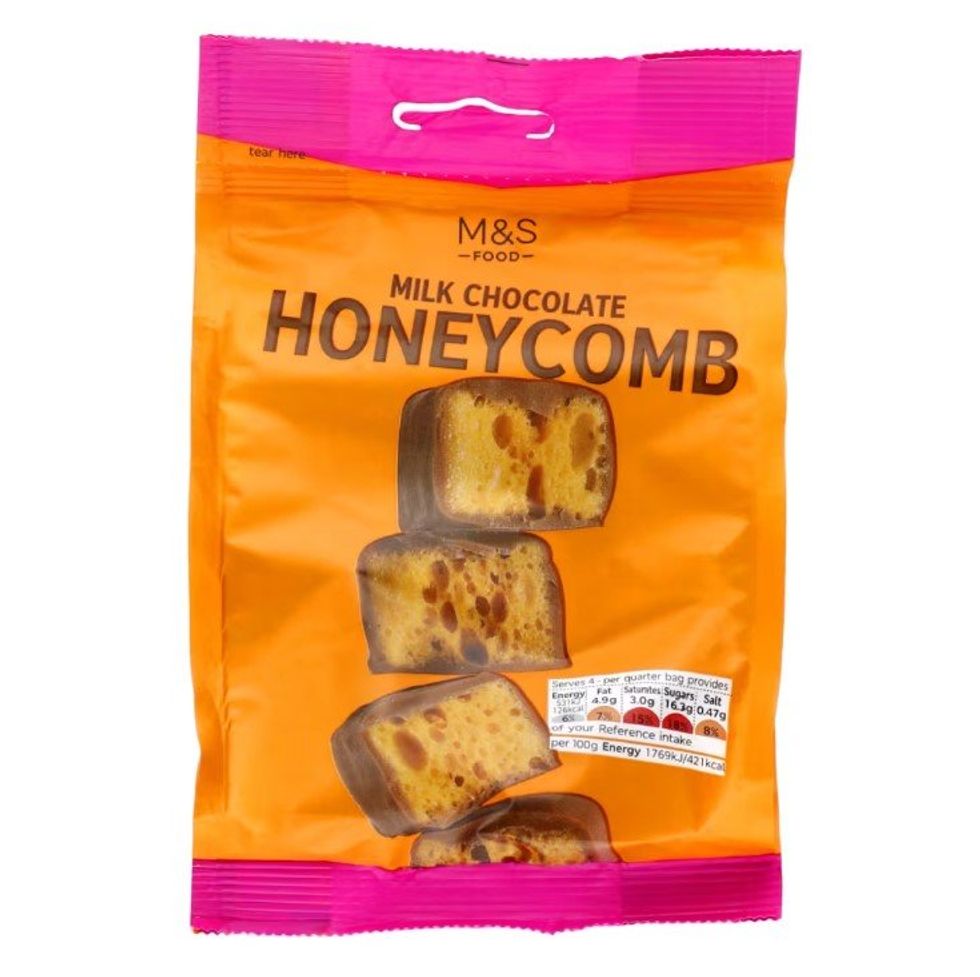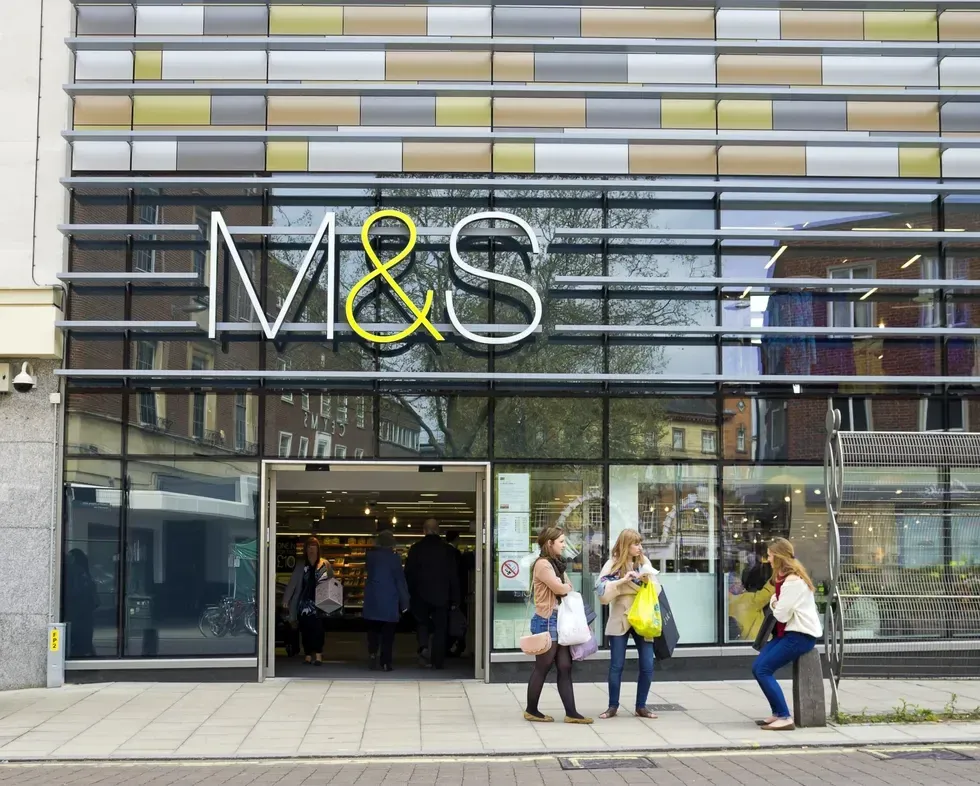M&S issues urgent 'do not eat' warning over popular chocolate – reactions could be 'life-threatening'

WATCH NOW: Before dining out, Britons should check the food hygiene rating for their chosen restaurant
|FOOD STANDARDS AGENCY

Peanut allergy sufferers have been called to action, as health officials detail potentially 'severe' risks
Don't Miss
Most Read
Latest
Marks & Spencer has pulled its Milk Chocolate Honeycomb from shelves after discovering the sweet treats may contain undeclared peanuts.
The popular 120g packs are being recalled because they pose a potential danger to anyone with a peanut allergy.
The high street retailer confirmed that specific batches of the chocolate honeycomb may have been contaminated during production, a serious concern for those who rely on accurate labelling to keep themselves safe.
The affected products carry lot number 5242 and have a best-before date of May 12, 2026. Affected barcodes include 0917568 and 29143603.
TRENDING
Stories
Videos
Your Say
The contamination means these sweets could trigger reactions ranging from mild symptoms to severe allergic responses.
In light of this, M&S is urging customers who have bought these particular packs to check their cupboards straight away.
Anyone with a peanut allergy who has eaten this chocolate should seek medical advice if they're feeling unwell.
The recall was announced through the FSA yesterday, with M&S moving quickly to remove the affected stock from its stores.

Specific batches of Milk Chocolate Honeycomb may contain undeclared peanuts
|M&S
"Please do not consume the product if you have an allergy or intolerance to peanuts," the supermarket advised.
"If you wish to exchange the product, you can return it to your nearest store, where a full refund will be given."
Shoppers who require further assistance can contact M&S customer services at 03330 148555.

Affected shoppers can return the product to their nearest store for a full refund
|GETTY
M&S emphasised that no other Milk Chocolate Honeycomb batches have been affected by the recall.
The supermarket assured shoppers: "Customer safety is of paramount importance to Marks & Spencer and we take all issues regarding the production of our foods extremely seriously."
LATEST FOOD NEWS:
Symptoms of a peanut allergy
Peanut allergy affects around two per cent of children in the UK, usually developing in early childhood, although it can occasionally appear in later life. It tends to be persistent, with approximately one in five children outgrowing their allergy, typically by the age of 10.
Medical charity Allergy UK stated: "Signs and symptoms usually occur within minutes of contact with peanuts, but can also occur up to one hour later.
"Most allergic reactions are mild, but they can also be moderate or severe. Anaphylaxis is the most severe form of allergic reaction, which can be life-threatening."
Mild to moderate symptoms include an itchy mouth, tongue and throat; swelling of lips, around the eyes or face; red, raised, itchy rash (often called nettle rash, hives or urticaria); vomiting, nausea, abdominal pain and diarrhoea; runny nose and sneezing.
Meanwhile, severe symptoms of anaphylaxis include; swelling of the tongue and/or throat; difficulty in swallowing or speaking; change in voice (hoarse voice); wheeze (whistling noise) or persistent cough; difficult or noisy breathing; dizziness, collapse, loss of consciousness (due to a drop in blood pressure); pale, floppy, sudden sleepiness in babies.
About allergy alerts
The FSA explained: "Sometimes there will be a problem with a food product that means it should not be sold.
"Then it might be 'withdrawn' (taken off the shelves) or 'recalled' (when customers are asked to return the product).
"Sometimes foods have to be withdrawn or recalled if there is a risk to consumers because the allergy labelling is missing or incorrect, or if there is any other food allergy risk.
"When there is a food allergy risk, the FSA will issue an Allergy Alert."










